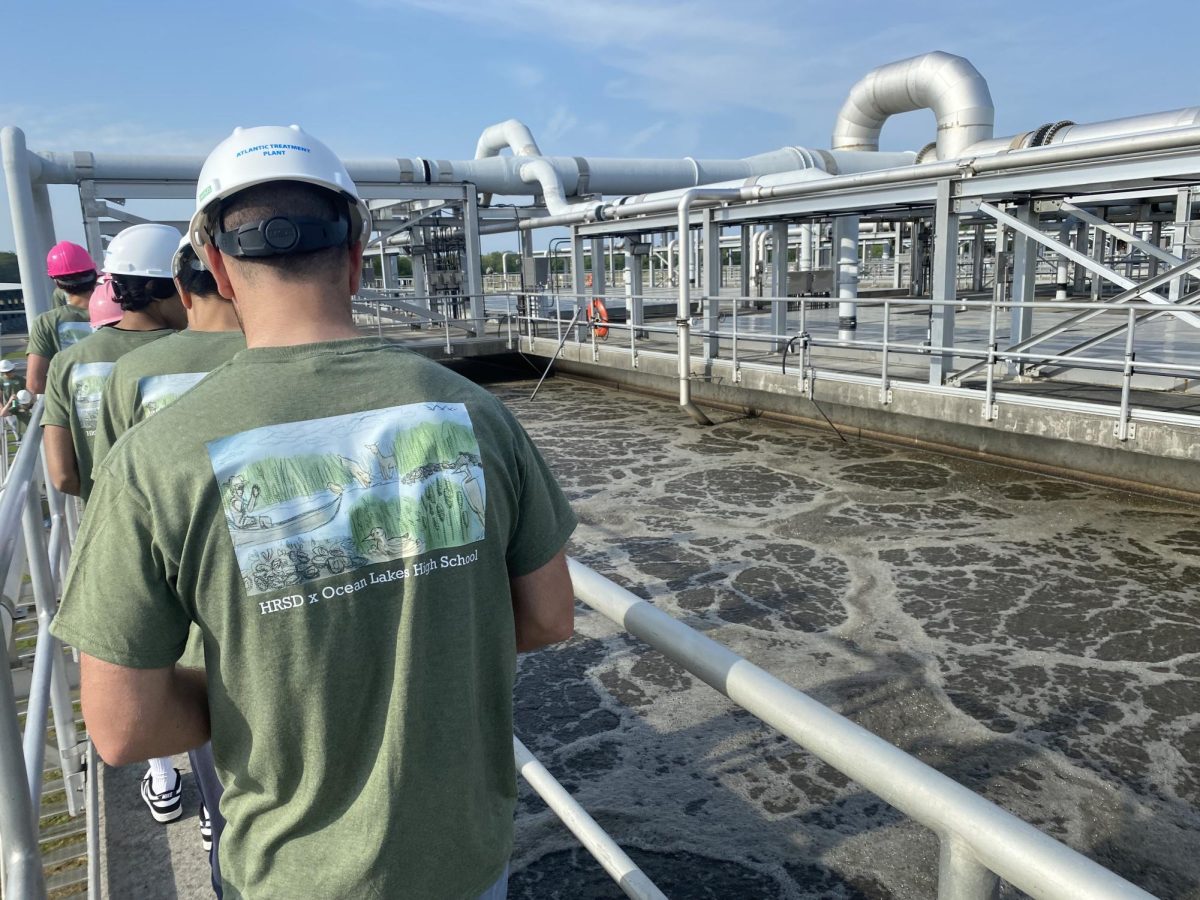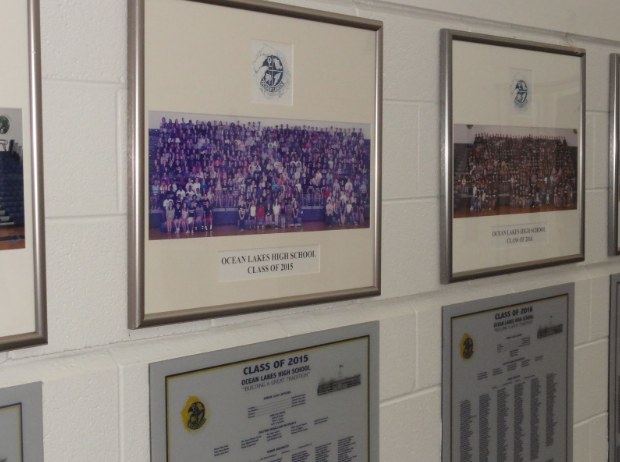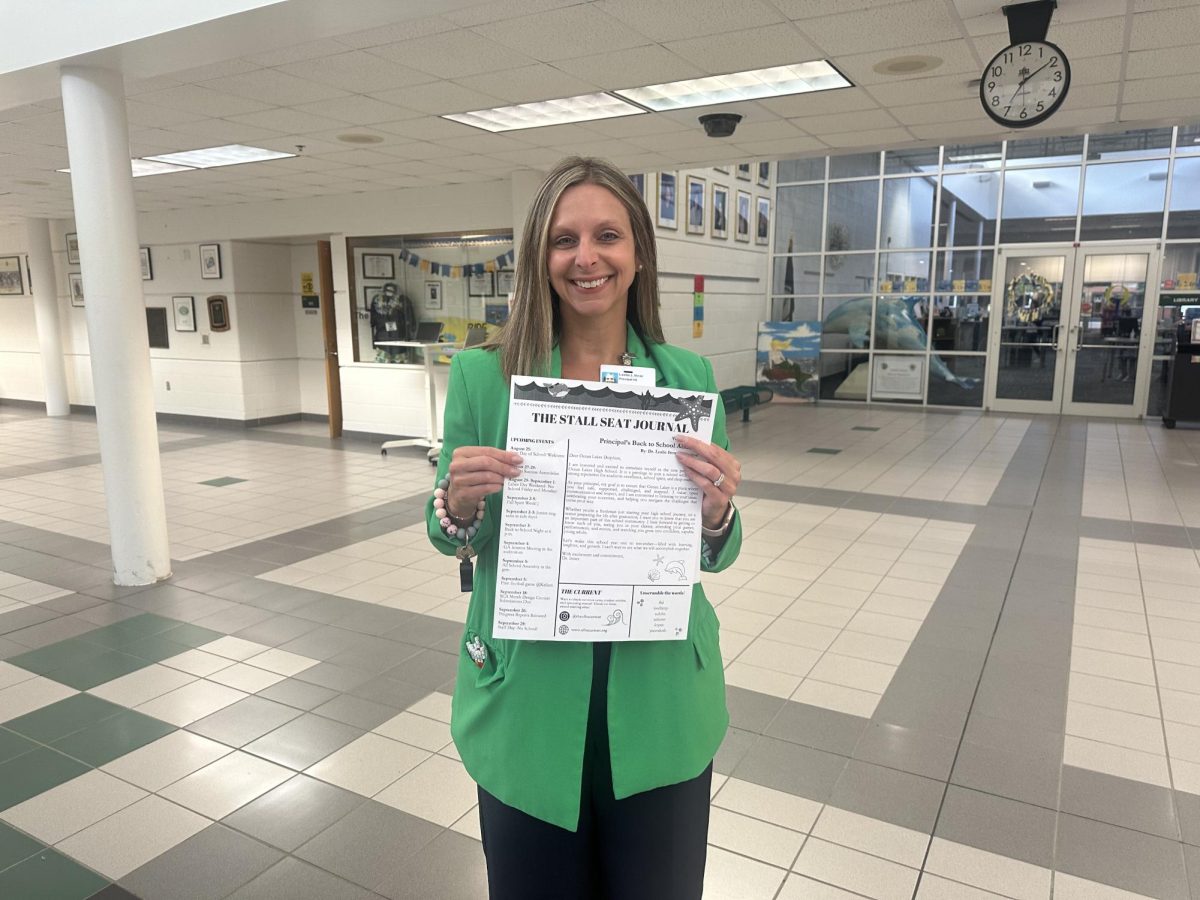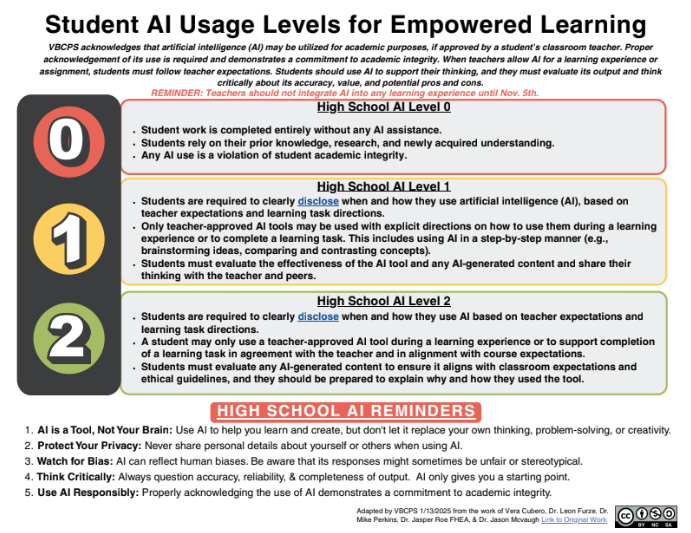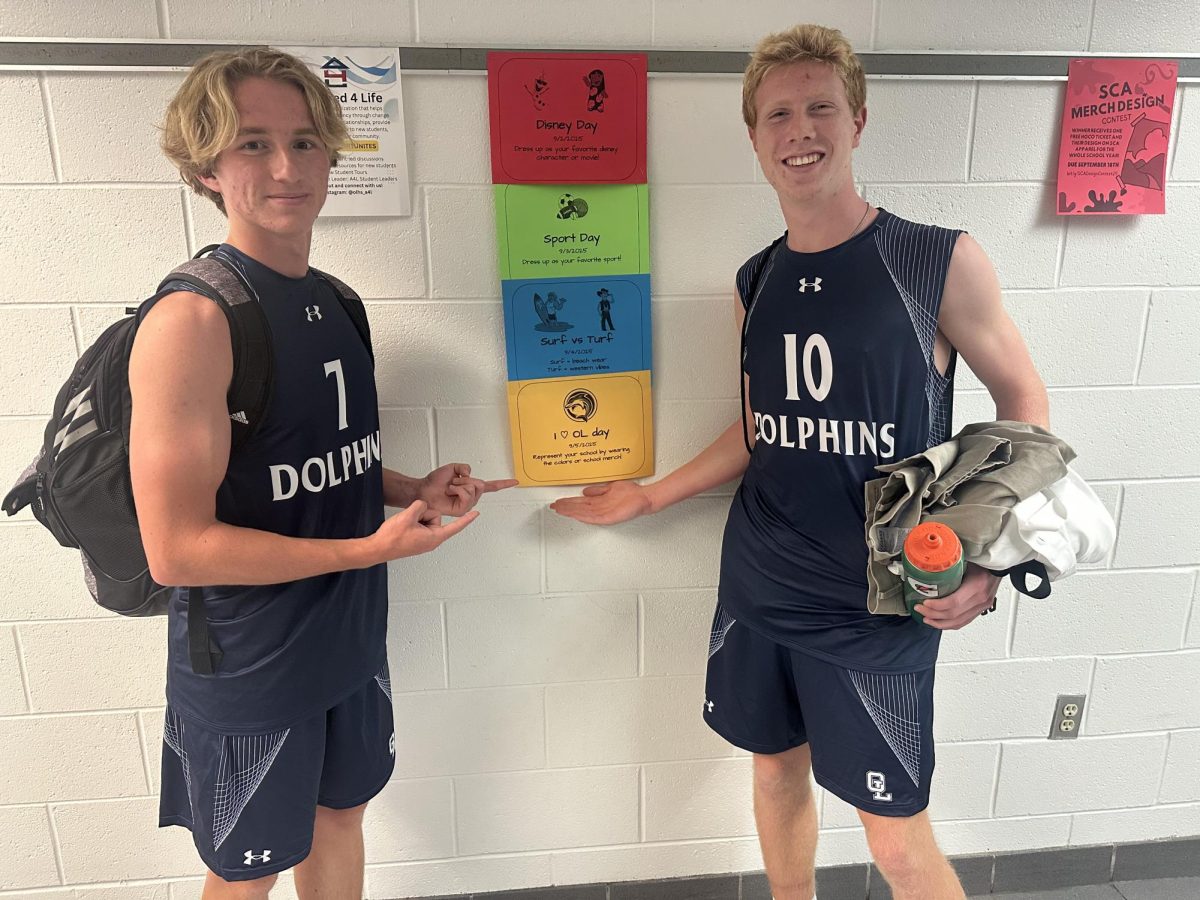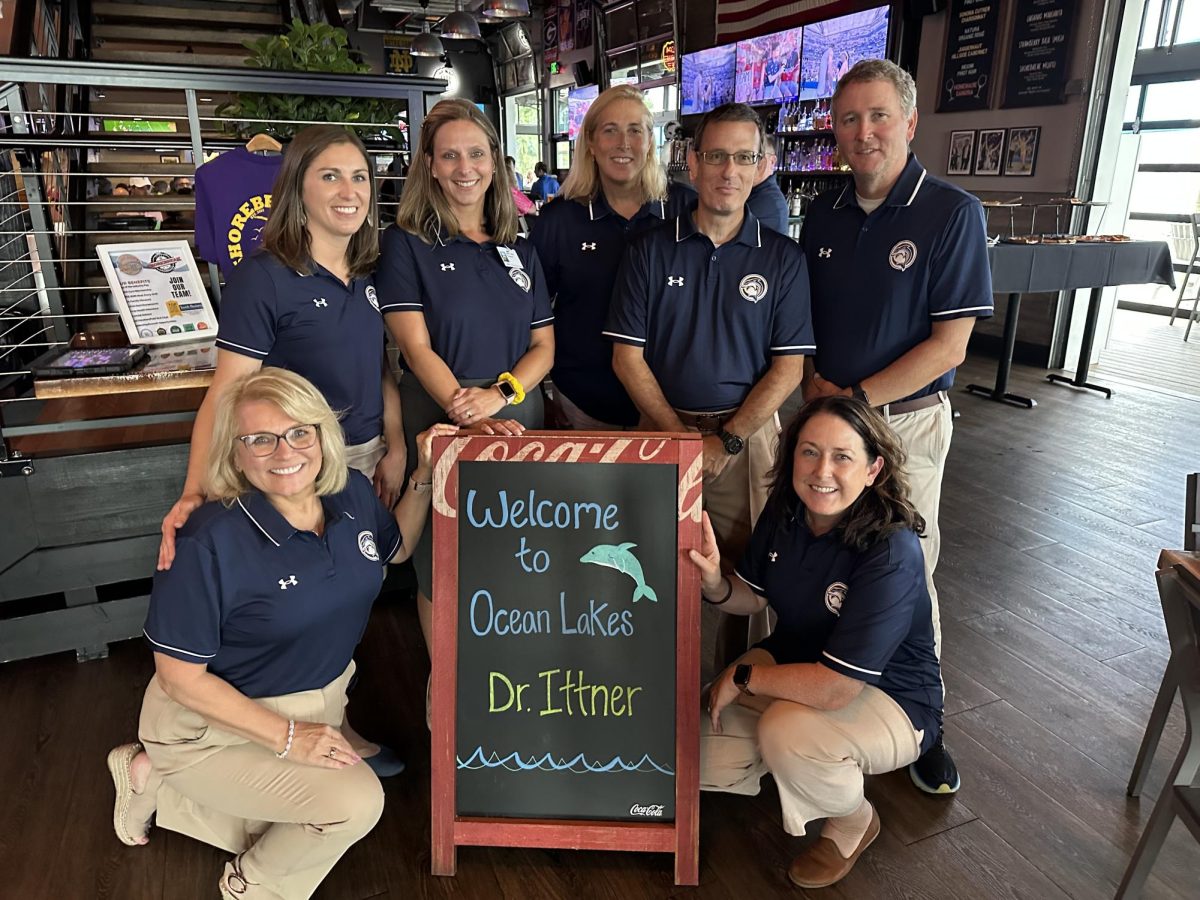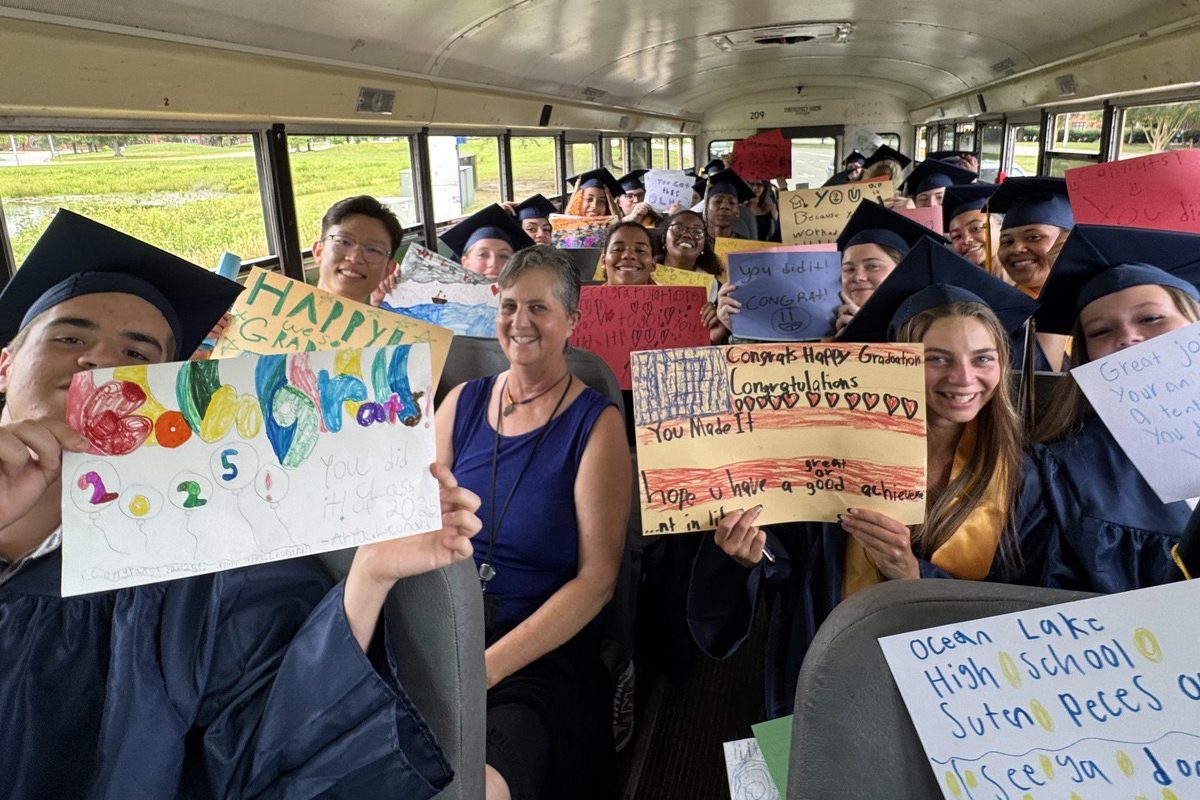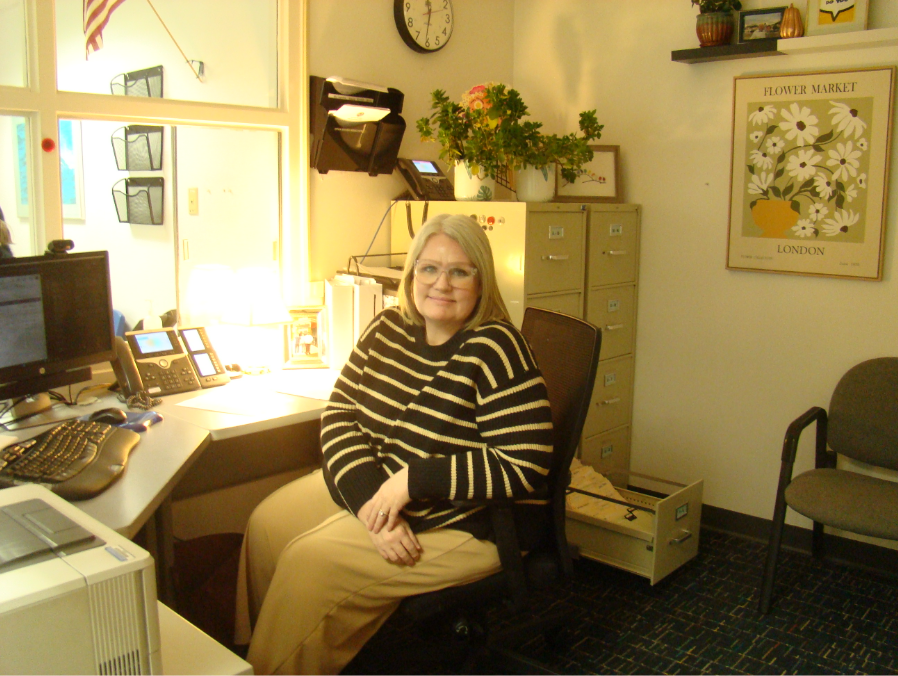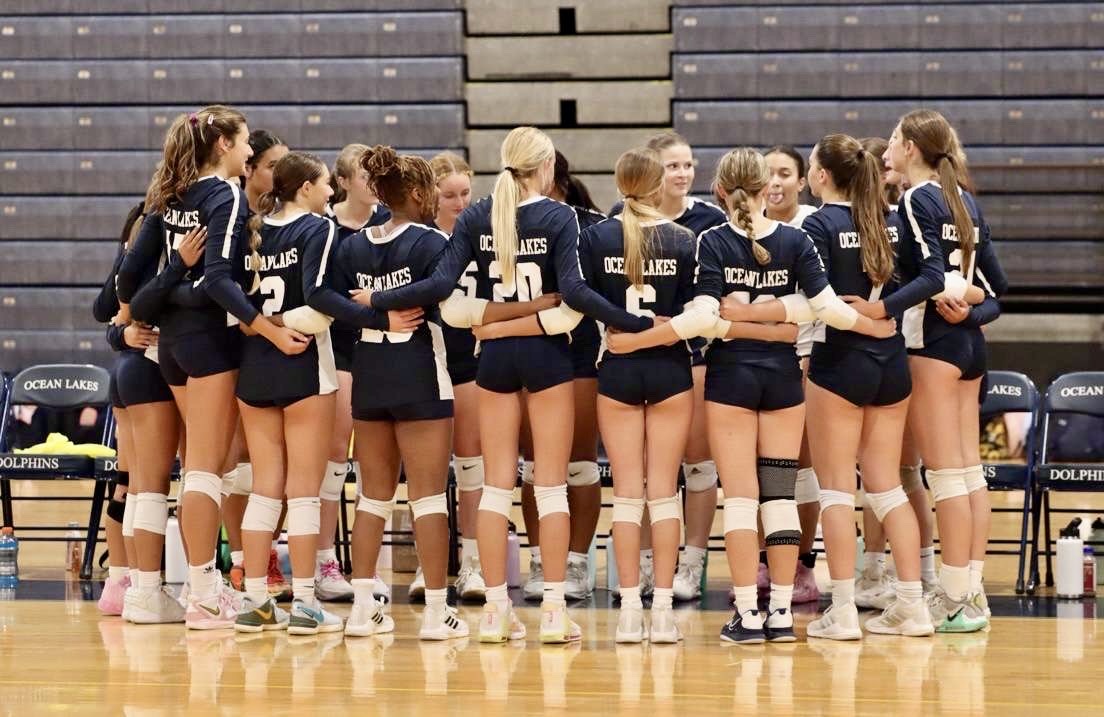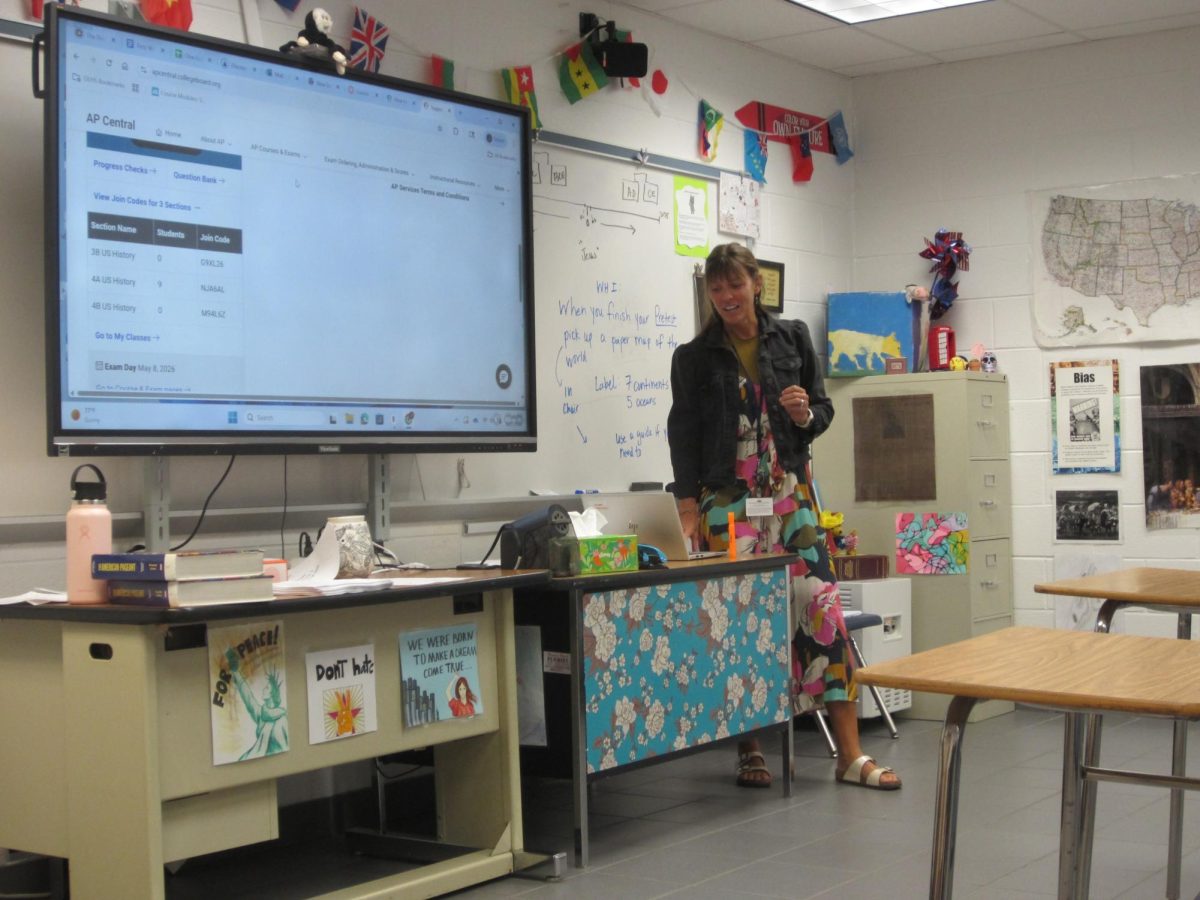Earth Day this year took place on April 22, 2025, and marked the 55th anniversary of the first Earth Day celebration. AP Environmental Science students took the lead in learning about waste management and pollution at the Hampton Roads Sanitation District (HRSD) facility.
“When students are able to go, see and do, it greatly enhances the understanding and interest of any topic,” AP Environmental Science teacher Nicholas DiNapoli said. “We have discussed water treatment in AP Environmental Science, but to be able to see it happening in action provides an entirely different learning experience.”
Students walked to the facility from school, where they were then separated into three groups. Each group took turns touring the facility, learning about water treatment in an indoor lab and building bird houses. Students were also given the opportunity to create bird seed balls and witness a pipe repair demonstration.
“My favorite part of the trip was touring the [facility] and seeing the color of the waste get cleaner after each station,” senior Oliver Stroppa said. “I was shocked by how much water they treat every day and where it ends up, especially how some of it is released into the ocean.”
While modern society depends on reliable access to clean water and other natural resources, the systems that support these necessities may often be overlooked, highlighting the role of environmental awareness days like Earth Day in drawing attention to this dependence.
“Water sanitation is an absolutely vital process for societal function, and it is very easy to take many of the ‘givens’ of everyday life for granted, so every once in a while it is important to stop and truly appreciate all the planet provides,” DiNapoli said. “That is what Earth Day is all about.”
HRSD treatment plants have a combined capacity of over 225 million gallons per day, intaking waste water from multiple household utilities including toilets, showers, dishwashers, sinks and washing machines.
“We humans use a significant amount of [unnecessary] water, and it has to be managed through a process that ultimately pollutes our environment one way or another,” senior Denis Stepanenko said. “We should use up as little water as possible going about our lives, whether that be through taking shorter showers or not leaving the sink on.”

